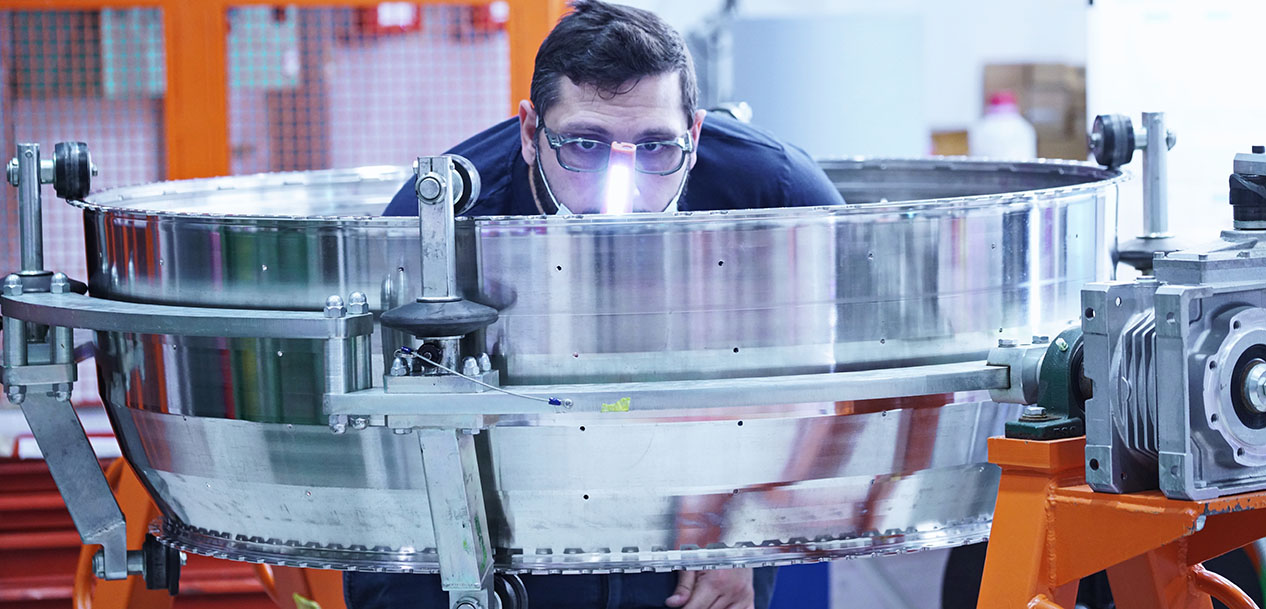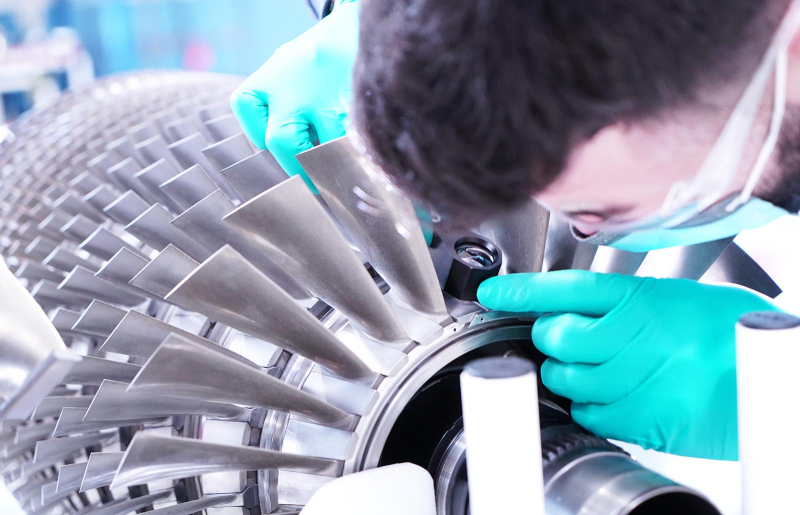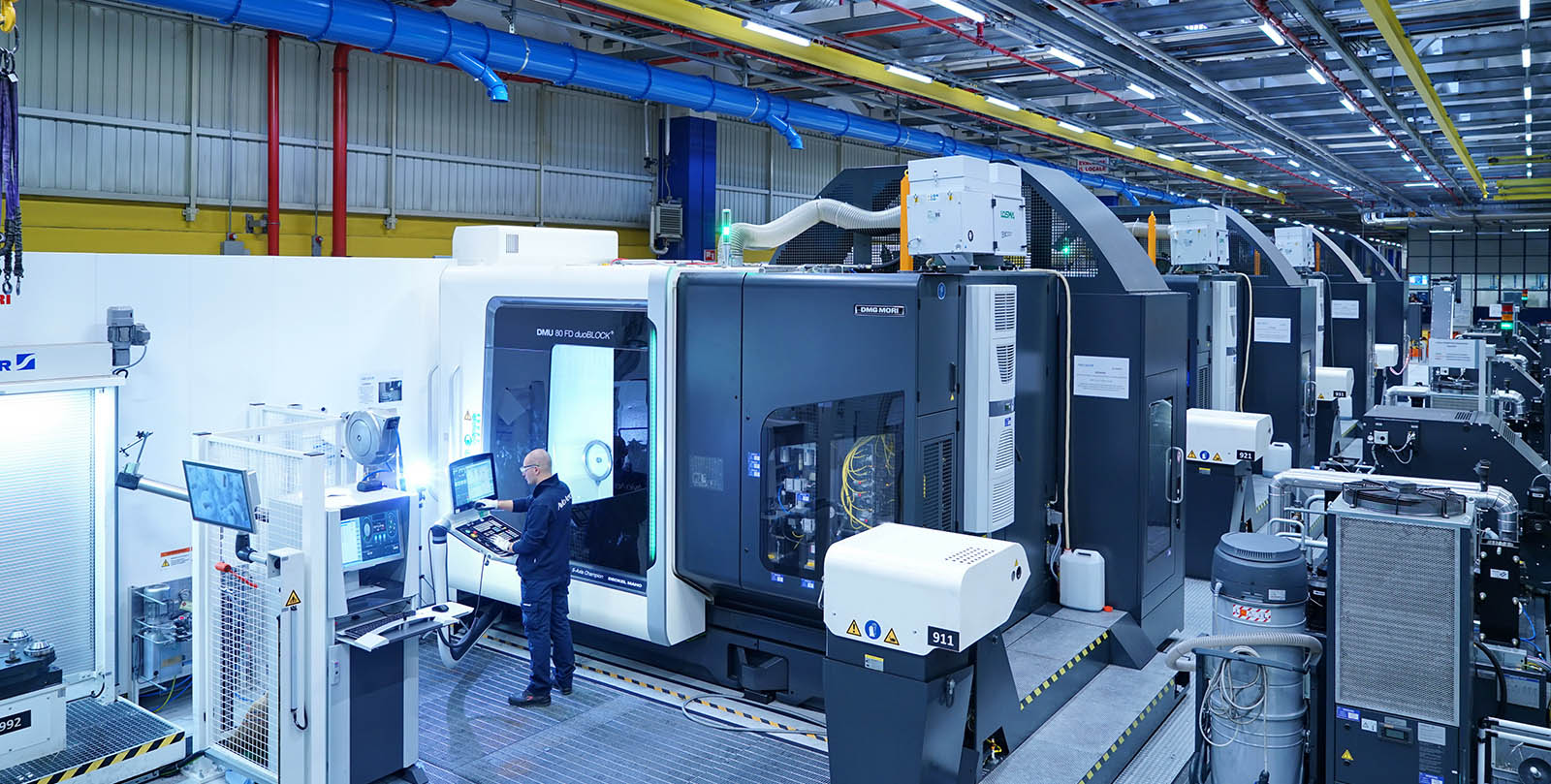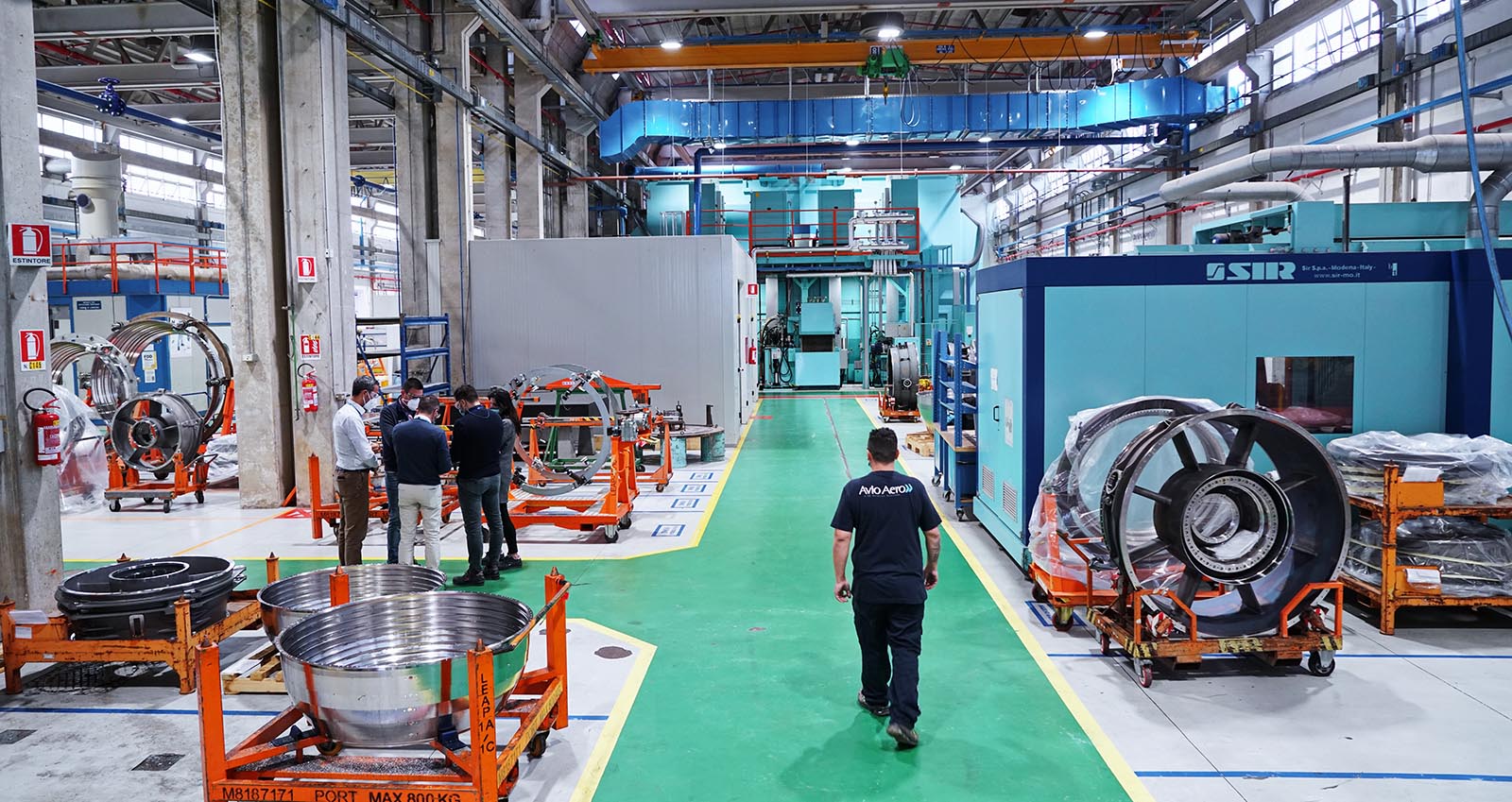Humans
The uniqueness of aviation industry
Career paths open to shop floor professionals expanding opportunities for skill enhancement and access to key roles that interconnect engineering and manufacturing.
Mar 2023
In the world of industry, the figure of the production line operators are key figures: they represent the most direct contact with the product, at the crucial stages when the product is made to fulfill a mechanical or electronic function, for example.
In the aeronautics industry, this principle applies even more so: those products that line operators establish direct contact with will help bring a multi-ton aircraft into the air, possibly with many people on board, or goods and resources destined, for example, for a rescue mission.
Of the almost six thousand professional figures of a company like Avio Aero, between Italian and foreign offices, over 50% are factory professionals: technicians, machine or production process operators but also expert maintenance staff and aeronautical repairers. We learned about this from speaking with Federico Bogetti, Senior HR Business Partner of the Global Supply Chain (GSC) function at Avio Aero, an area that includes manufacturing plants and industrial functions and is characterized by high complexity and volatility.
"Our products, given the strict quality protocol and stringent aeronautical regulations, require super-specialized operators and technicians compared to the traditional figure of operators in the vast engineering industry," Bogetti explains. "The hours of training and shadowing required to obtain certifications and qualifications make the level of expertise of an operator in Avio Aero or GE one of the highest among all industrial sectors."
That is why the HR teams of the Italian manufacturing plants, in consultation with managers at various levels of the GSC, work on projects to develop and enhance careers which are purely related to the metalworking sector. On the one hand drawing on more than 100 years of experience and continuously optimized processes typical of its industrial reality and, on the other, by structuring progressive growth paths.
“At the end of 2021, with the post-pandemic restart and the return of volumes, we saw the need to include additional clerical roles both in the technical and managerial fields,” says Marta Bertino, HR Manager at the Rivalta plant. “It was assessed that the most effective solution to cover such new needs was to build an internal development path, with the opportunity for our operators to grow in key roles for the company. Indeed, who more than them have acquired, right on field, fundamental technical skills for our products and processes. Thus, we designed a growth project by internally promoting the positions and opening up the chance of applying to all. Then, through a multi-stage assessment process, we selected the candidates who were most in line with both the characteristics and the business needs, launched a technical and managerial training plan lasting around 12 months and, after that, officially assigned the role”.
These are important roles that directly influence plant management and perform the fundamental task of combining engineering and design with the product itself or the process by which it is made: for instances, Quality Engineer, Manufacturing Engineer, Supervisor, Logistics and Lean Specialist.
"We structured the initiative so that it would be applicable at all sites based on the needs that may arise in terms of both volume and expertise," adds Valeria Bottiglione, HR Manager at Avio Aero Brindisi. This strategic industrial site is somewhat particular because it hosts operations and activities for the overhaul and maintenance of components as well as whole aircraft engines. From the perspective of professional development, this means that learning opportunities and pathways find different and new outlets.
"There are no limits as far as career paths are concerned: we have prior cases and experiences that have already been under way for some years, involving workers who - either after obtaining a degree or after starting work in the company following dedicated training - now hold positions of responsibility in technical and/or managerial roles," Bottiglione adds.
The chance for an employee to elevate their résumé even further, and increase their knowledge and skills, remains an accessible opportunity for workers, also through specific GE programs, to pursue further education and aspire to academic degrees. Several people in each Avio Aero plant started from factory jobs and then went on to earn a college degree.
Over the past two years, this joint project between HR and GSC in Avio Aero has provided more than forty workers throughout Italy with the opportunity to grow professionally, while continuing to safeguard a primary goal for HR: the right mix of professionalism by drawing talent from outside who can bring new, different approaches and mindsets.
"This industry, and this company specifically, possesses a uniqueness that is made up of particular skills and technical specialties, in some ways uncommon to the traditional figure of a worker," Bogetti says. "It is an equally unique resource for us to elevate and develop."







